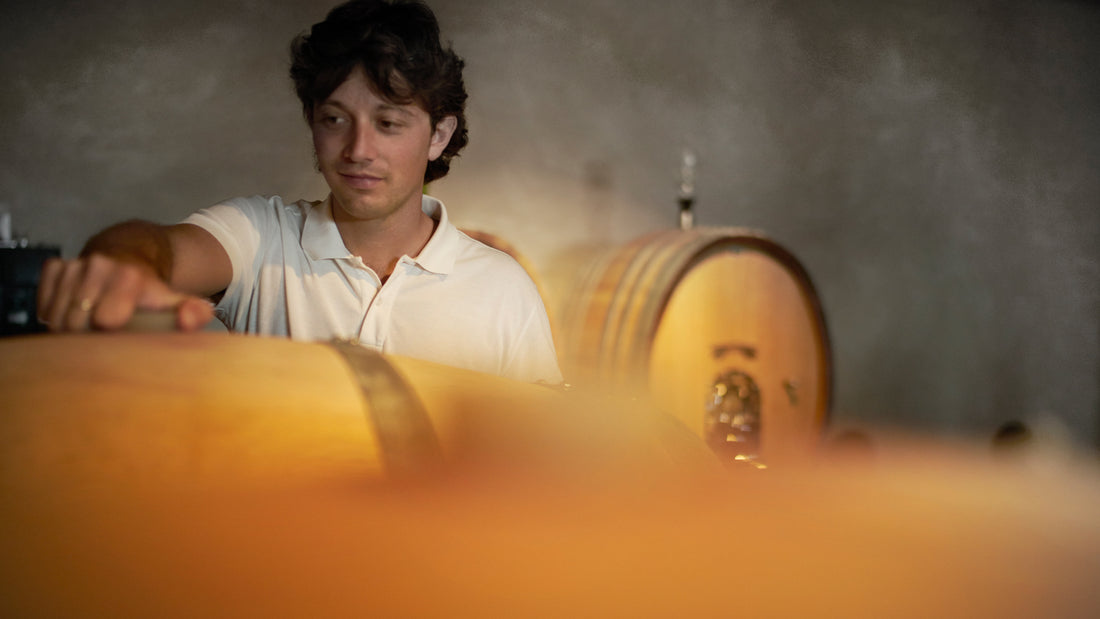"But what is biodynamic farming all about, and how does it differ from organic farming? To answer these questions, we have interviewed our experts Barbara Coppi (reception manager and sommelier) and Giuseppe Basta (agricultural expert and technical director at Tenuta Sanoner).
Organic vs biodynamic – there seems to be a bit of confusion around these two concepts. What are the similarities and difference between these two farming methods?
Giuseppe Basta: First things first, we need to clarify that to be eligible for the DEMETER seal, products need to have been granted ORGANIC certification, which is regulated by European Union legislation. Although the two concepts differ in their underlying view of agriculture, they do share some common principles. These include eschewing pesticides, synthetic fertilisers and chemicals in general, as well as banning GMOs, protecting biodiversity and practising crop rotation.
How does this holistic view concretise in terms of work in the fields and vineyards?
Giuseppe Basta: Much of it has to do with adopting some specific measures aimed at revitalising the soil and improving product quality. This can be done, for example, by replacing synthetic fertilisers with biodynamic preparations made of plant, animal and mineral substances. Another distinctive aspect of biodynamic practice lies in taking into account the moon phases when planning the various activities, such as sowing, harvesting and bottling. This is based on the assumption that the moon’s gravitational force can influence the water balance in organisms – including the sap in plants – much in the same way as it affects the tides.
Can you give us some examples of biodynamic farming practices at Tenuta Sanoner?
Giuseppe Basta: We use biodynamic compounds such as horn manure (Cornoletame/ Preparato 500), which is a preparation made of cow manure fermented inside a cow horn and buried, mixed with rainwater to activate its properties, as well as ground rock crystal (also cow-horn fermented) energised with natural water (Cornosilice/Preparato 501). The horn manure is used to promote soil moistening, while the rock crystal enhances the effects produced by heat and light on the plants. We also honour an ancient practice called green manuring, which consists of fertilising the soil by burying some plant species that, decomposing, turn into humus. Another example is the fact that we avoid pruning during full moon phases, so as to avoid wasting the precious sap that flows within the branches.
Barbara Coppi: We are aware that this approach can raise some eyebrows. However, these are all ancient practices that have been followed for centuries, up until our grandparents’ generation. Today, with the increased need for sustainable alternatives to agro-industrial practices, they are making their comeback. With increasing proof of the long-term benefits of biodynamic farming on soil fertility, as well as on plant health and resilience, more and more farmers and winegrowers are switching to this method.
Environmental protection is important to all of us, of course. But are there any other advantages for consumers?
Barbara Coppi: Biodynamic products have great potential and a distinctive, changeable character that reflects the year of production. A more vital soil makes for healthier, more genuine products with an authentic flavour. It’s a bit like the difference in taste between the salad from your garden and a store-bought, bagged salad. Apples and oranges!
"
BACK TO OUR ROOTS - Follow our experts on a discovery journey into the world of organic and biodynamic farming

